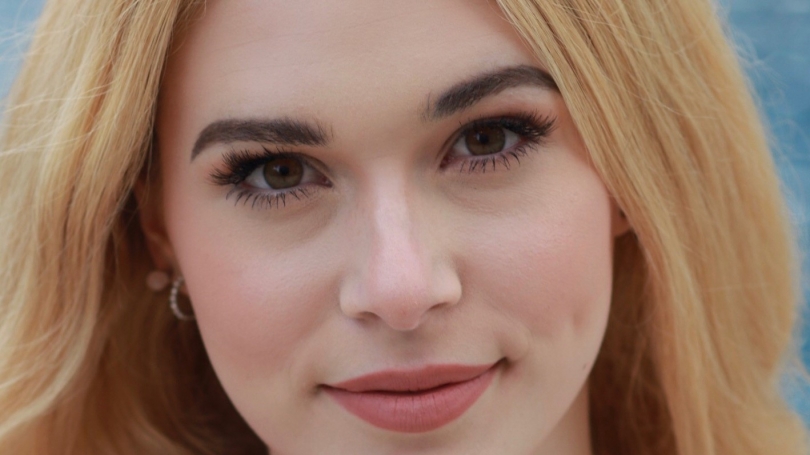"Bruising" Women: Jacqui Byrne '22.
In anticipation of The Sweet Science of Bruising's US premier, we spoke with the actors who portray female boxers in Victorian England. This is the second of four interviews.
Starting February 21, The Sweet Science of Bruising will be making its US premiere at the Hopkins Center. By British theater and TV writer Joy Wilkinson, the play follows the stories of four Victorian-era women, and how their lives become intertwined within the underground boxing scene. Each with her own motivations and backstory, the unlikely group of women find themselves inextricably linked to each other through their struggle to navigate a male-dominated sport at a time when women were granted few freedoms and rights. Who are these women, and how did they find themselves in the boxing ring? Today we meet Matilda Blackwell, played by Jacqui Byrne '22.
Can you talk a little bit about your character, Matilda Blackwell?
Matilda is a very poor Irish immigrant. She starts off working many jobs that she gets fired from, and eventually becomes a sex worker. But she is really a hustler and does whatever she needs to do to get by. She works at the Times and writes for them, she also babysits and then at night she goes to the theaters and looks for men to sleep with for money.
Do you think that Matilda is a good role model for women?
I think it's a mix. Obviously she doesn't want to be in the situation she is in. But at the time, prostitution was sometimes the only option for women who were not married or born into a lot of money. So it's empowering that she doesn't let that define her. She is so many other things. Matilda can read people really well. She sees people very easily and is very streetsmart -- so she doesn't take anything from anyone. She is really independent and knows herself because she's had to fight all of her life to stay alive. She's not the typical perfect Victorian woman. And even though she has to be a sex worker to make money, she teaches herself to live through it and imagine that she is somewhere else. So I think that is a very strong story for women.
How have you prepared to play Matilda?
Well, Matilda is Irish, and I'm not. So I had a dialogue coach who I worked a lot with. Learning to speak with an Irish accent has been tough, but it's coming along pretty well -- hopefully. And learning the accent helps me get into her character too, because it's connected to Irish humor and wit. I've been listening to a lot of videos and tapes of Irish people and they have a certain melodic tone, and a very specific way they deliver sentences. So it's been helpful to learn about that for the script and the way I say the words. An Irish accent especially, is one of the hardest because it has the toughest consonants and vowels to flip. But it's been kind of fun.
How did you first get into acting?
I started acting when I was really young, like 8. My mother kind of just put me in everything, so that I could decide what I liked. And I was a really shy kid so acting helped me get out there and do my own thing. And then I just kind of stuck with it. I did acting productions and took classes all throughout high school. During the summer I was always at some kind of conservatory or acting camp. Last year, I was at Chapman University, which is a very big performing arts school. And I'm taking Acting II right now. I'm planning on declaring a theater major -- I've always loved acting and I want to do it in the future. I was also just really inspired by this show and how there are all women leads. That's very rare. Also, this production is the US premiere of the show.
Why did you decide to transfer from a performing arts-focused school to Dartmouth, which has a considerably smaller theater department?
I really enjoyed parts of being at Chapman and I loved that we had really big productions. But it was also very competitive and cutthroat. And I didn't think that was the best environment for me. My sister goes to Dartmouth, and when I visited her I loved the school and the community. And while the theater department here is a lot smaller, I get a lot more actual acting experience. I would rather have experience in plays with professional directors than be at Chapman, where I would maybe get one good part my entire time there -- if I got one at all. And I didn't really want that. I also know that if I feel like I need additional acting training or theater education, I can go to grad school. But I don't even think that will be necessary. It's more about what you put into it, than what college you go to. Meryl Streep went to Vassar. Also, I wanted to be in a more academic environment, which I think helps contribute to acting because as an actor, you're also doing a lot of analysis and character work and background research.
Why should everyone go see The Sweet Science of Bruising?
First of all, it's the US premiere which is very cool and unique. It's also a really dynamic show, with something for everyone: there's tragedy, hardship, comedy and action. All in all though, it is a story of overcoming your surroundings and rising up, which is really inspiring and something that everyone can relate to.
